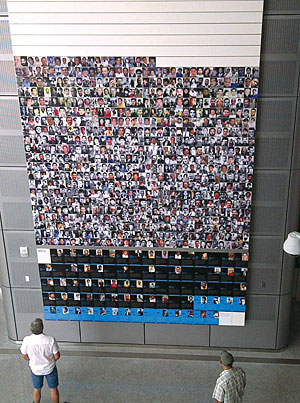 KUNDA DIXIT |
Politics in Nepal is in crisis, not because we have a stalled peace process or an incomplete constitution, but because it has mutated into an ugly beast, which is ideologically eroded and without ethical and moral conscience.
The greatest legacy of the present leadership is the politics of money and muscle, and it is already manifesting itself in impunity, erosion of the rule of law and lack of accountability. In 2008, Avenues TV correspondent Birendra Sah was brutally murdered by Maoist cadres. In December of the same year, the body of a missing editor of Janadisha daily J P Joshi was found in a forest in far-western Nepal. In 2009, radio journalist Uma Singh was hacked to death by 15-20 men in her room. This is not an exhaustive list, but they all have one thing in common: although some small fish were caught the masterminds of the murders have got away with it.
The benchmark set by the parties is religiously adhered to by their lumpen youth brigades who target individuals and journalists. The killing, abduction and manhandling of journalists in various parts of the country for critical reporting, vandalism of media property and arson on newspapers meant for delivery have become everyday affairs.
Every party has a militant brigade, and now factions within them also keep rapid deployment gangs. Last year's clash between the Maoist YCL and the UML Youth Force resulted in street riots in various parts of the country with at least one casualty and dozen injured. It is getting difficult to distinguish between criminal gangs and political gangs. Most clashes between rival youth wings are not over ideology but over government tenders, contracts and extra-judicial settlements of local disputes that often involves large sums of money, and collusion with real estate and land mafias.
Whenever a journalist has dared to expose this nexus, they have been threatened, beaten to pulp, as in the case of Khila Raj Dhakal in the Biratnagar incident last week, or even killed. The messengers are trapped in between the criminalisation of politics and the politicisation of crime, so that self-censorship has become the norm. The guilty go unpunished because they enjoy the patronage of the parent party, and impunity breeds further impunity.
The proliferation of small firearms from the porous border and absence of the state in law enforcement, signal a dangerous future. This is not a transitional law and order problem anymore, politics in Nepal has been replaced by the politics of violence and intimidation that seeks to stifle and eliminate dissent. Politics has become only a means to amass ill-gotten wealth and power.
The political parties call their youth brigades pratikar dastas (counter-force) as a deterrence against rival party youths, as a fundraising unit to replenish its war chest and deploy at election time. And all of this happens right under the nose of the state, which is run by the same people that shelter them.
Only by bringing an end to the instability, and reinstating the state will this change, and politics will be what it is supposed to be: a non-violent competitive process of finding the most efficient and honest managers to run the country for a limited period.
Read also:
Budge on the budget, EDITORIAL
Eight reasons why, SANJIB SUBBA
From Awesome to Awful, NGUTUP SHERPA



